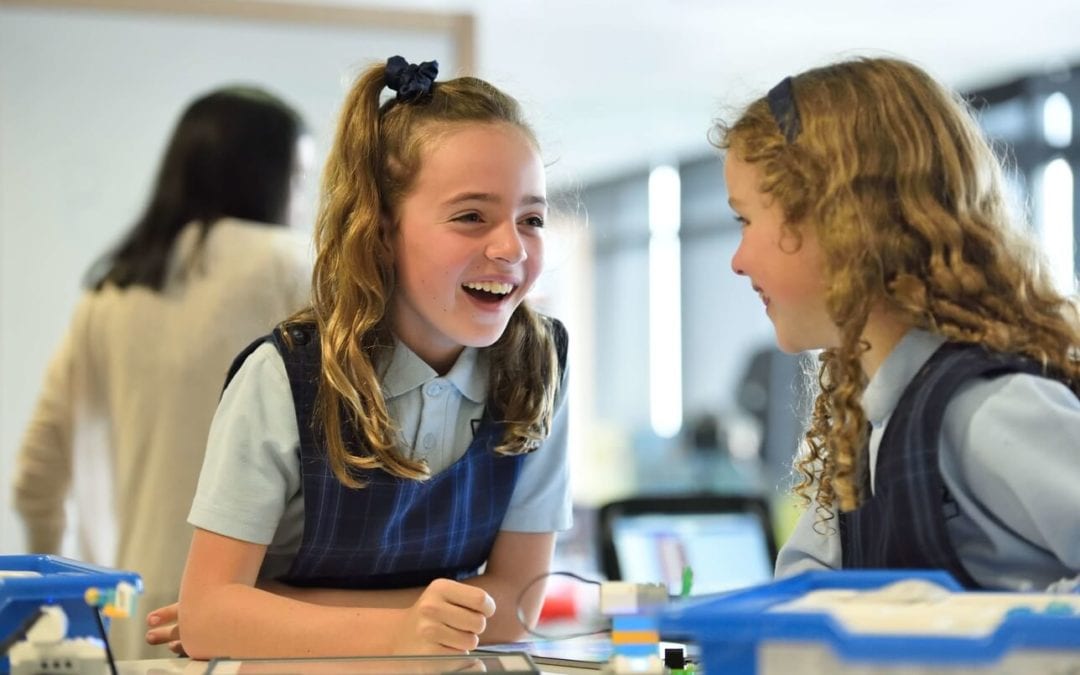I recently did a transition session with a Year 7 student and we added up how many teachers he has. The answer was a staggering twenty four teachers. In some subjects he has three teachers. He has gone from a small primary school with only one teacher to twenty four teachers, teaching him fourteen separate subjects. So transition to high school – how to make it easier?
That is a lot for anyone to take in, never mind an eleven year old starting a new school. Add to that being in a form of twenty nine other new students, plus separate subject groupings for Maths, Science, Languages, Design Technology and PE, and you have hundreds of new faces, names and personalities to get used to. We haven’t even mentioned the school bus and the dynamics of where you sit and who you sit next to. Then there are the after school and lunch time clubs with more new people.
Add to the transition mix: a new building which the average primary school can fit into seven or eight times; a two week timetable to get your head round; a school behaviour system to work out; a homework timetable; a much earlier start to the day; your first phone; possibly a school ipad and …your brain is frazzled and your head is spinning!
Welcome to the world of a Year 7 in their first term of high school. My youngest son has started at high school this term and it’s only when you stop and put yourself in their position that you begin to realise what an absolutely giant step it is. All the things he has to remember each day, as well as all the new experiences and faces.
Transition to high school – how to make it easier:
Organisation – Everything you need to remember can be divided into four categories: everyday school necessities (bus pass, pencil case, planner); vital subject equipment which changes every day (exercise books, PE kits, homework sheets, food ingredients); extra-curricular vitals (musical instrument, rugby boots); personal belongings (phone, scarf). The list is endless and takes organising. Having a space at home to keep school books together (not your bag) and sorting it each day, after finishing homework, works best. You can then switch off knowing that everything is in place for the next day.
Routine – Getting into a routine with homework as soon as possible will help the school year to pass much more smoothly. A good routine will include time for homework, organising your school bag, your extra-curricular activities and time to relax. It is generally a good idea to get homework completed as early as possible after getting home, but some children prefer to have a break before starting.
Talking and sharing – the school run used to be the time to discuss the day. Now they are getting themselves to and from school, it is even more important to build in that time. Meal times are good or over homework or even in the car on the drive to an activity.
Sleep – Starting secondary school is exhausting. Not only is there so much more to think about, but it’s usually an earlier start to the day as well. Year 7 also marks the start of adolescence for many students and studies have highlighted the need for more sleep during this time of great change.
Teachers – Having subjects taught by specialist teachers and a variety of personalities are what makes high school so special. There will be teachers who are funny, interesting, entertaining, likeable, knowledgeable, strict, quirky and…ones you don’t get on with or find dull. However, it is important to not let your feelings for a teacher affect your attitude about a subject, especially one that you enjoy. Youtube is a fantastic resource for finding teachers, if there’s a subject you’re not enjoying or understanding.
Friendships – schools go to great lengths trying to put friends from the same school together, only to find out that a few weeks later they’ve fallen out or moved on or made new friends. There are many more possible friends at high school than at primary school. It is good to remember that your friendship groups will change massively in the first few months as you find new friends whom you get along with. This is okay and quite normal.
Phones, Gaming and Social Media – The biggest cause of friendship problems is social media and gaming…out of school. Having a cut off time for screens and messaging provides an escape from the school day.
At www.studentnavigator.co.uk we offer a single session on transition for Year 7 pupils to help support them and their parents in this enormous step. Please contact us to see how we can help you.

